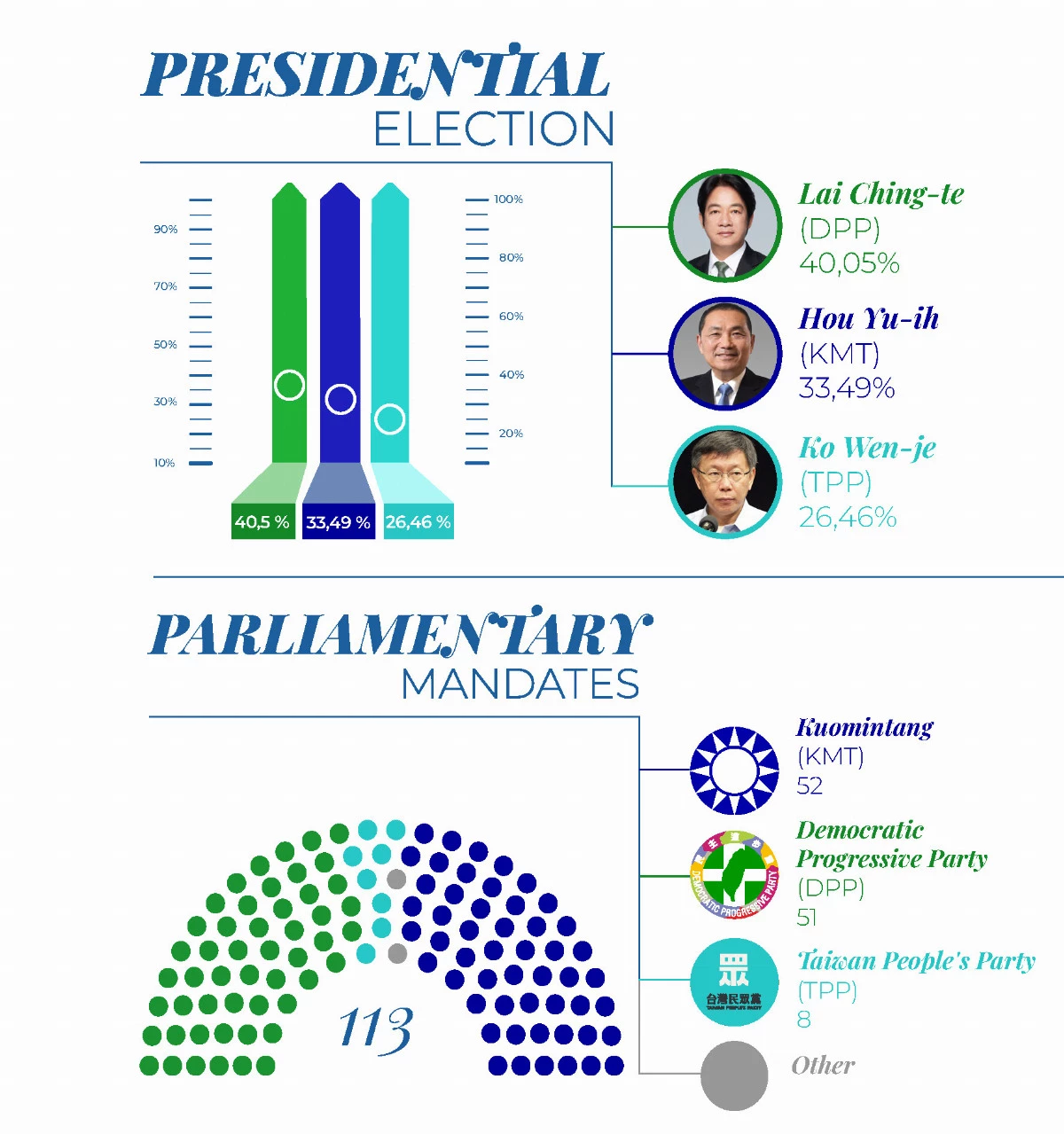
The significance of the election was heightened as both Chinese and Western media portrayed it as pivotal, a narrative that Taiwanese candidates also played into. Although the campaign initially revolved around foreign policy themes and cross-strait relations, it shifted later to domestic issues, primarily because voters were more concerned about everyday problems.
Voters primarily provided feedback on the DPP’s eight years. In light of this, the results are particularly interesting: although Lai Ching-te won the election, the ruling party’s position in the Legislative Yuan significantly declined. Losing 11 seats out of 123, they secured 51 seats, while the two opposition parties, the Kuomintang (KMT) and the Taiwan People Party (TPP), strengthened considerably. Given that the party’s support has consistently declined in recent years, having also lost local elections in 2022, the DPP may view the next four years as a last opportunity.
It won’t be an easy task. Tsai Ing-wen, the outgoing president, took office on May 20, 2016, and secured her position for two terms. In her first inaugural speech, Tsai expressed her gratitude for the votes with the following sentence: “The people elected a new president and new government with one single expectation: solving problems”.

Tsai identified five areas ranging from economic modernization to addressing social issues and Chinese as well as international relations. Of these, the last point can be considered successful. In the past eight years, Taiwan has become a central topic in international political discourse, and the foreign policy programs, especially the New Southbound Policy targeting Southeast Asia, have been undoubtedly successful. However, relations with China have frozen, and the party could only use the hostile atmosphere to a limited extent for its own support. The tactic backfired, leading the opposition to attack the DPP most on the increasingly perilous situation during their campaign.
However, most criticism was directed at domestic issues, the social system, and the economic problems of the Tsai administration. Taiwan also faces urgent structural issues in higher education, but deficiencies in English language instruction are also frequently mentioned.
Birth rates in Taiwan are among the lowest in the world, and last year, the statistics set another negative record. The low birth rate is linked to various unfavourable economic and social markers, including the gradual rise in the per capita national debt burden, a decline in domestic demand, a decrease in the labour supply, and challenges related to elderly care in a society characterized by a high percentage of elderly individuals.
These concerning issues show that the success of the DPP is not owed to its performance as a pragmatic problem-solver. It is the hardline identity politics, strong American ties, and a weak opposition that stand behind the January results.
The author is a Research Fellow at the Hungarian Institute of International Affairs